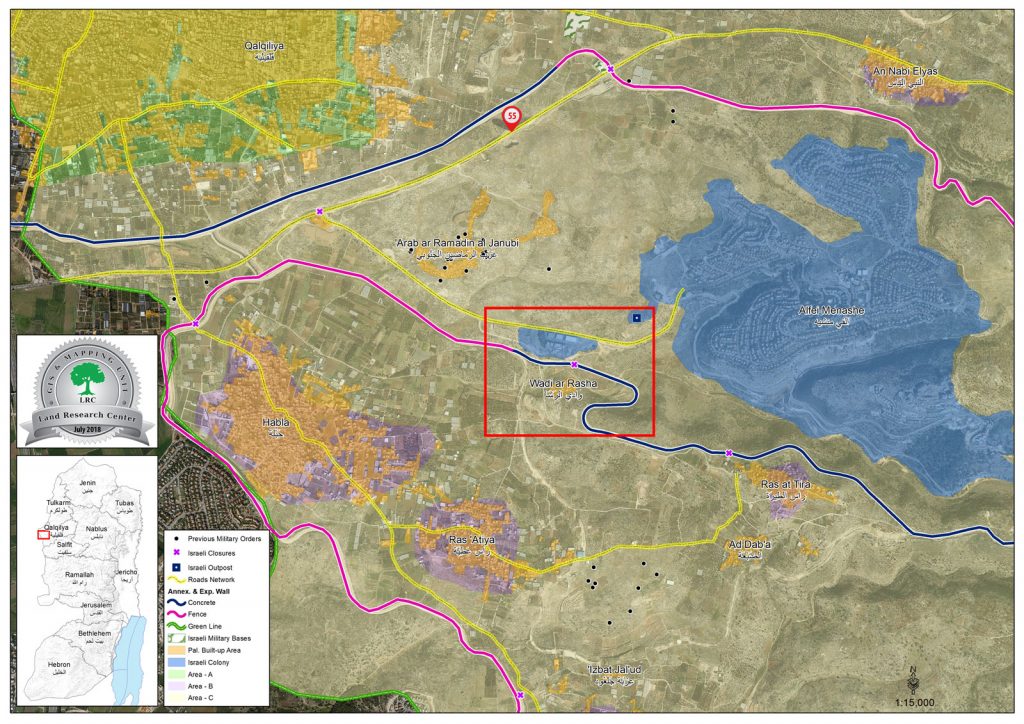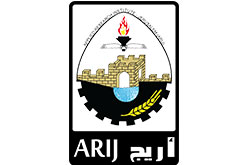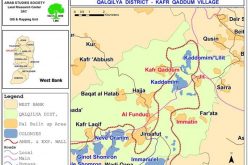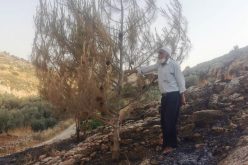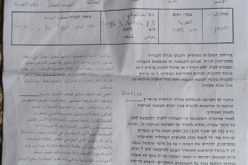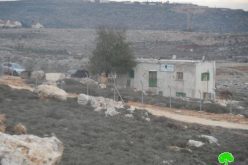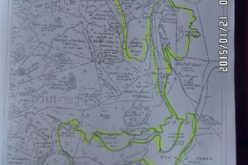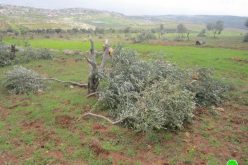Sewage Water from the Settlement of Alfei Menashe Targets Palestinian Agricultural Lands
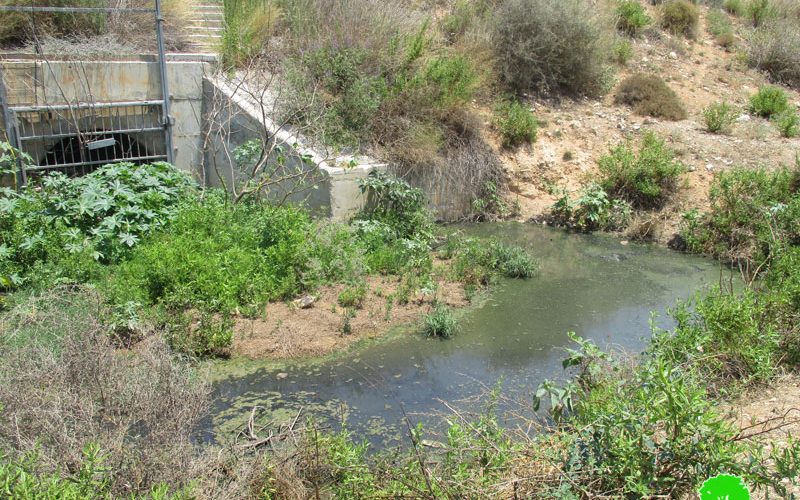
- Violation: Overflow of sewage water from the settlement of Alfei Menashe pollutes the Palestinian environment
- Location: Wadi ar-Rasha village. southeast from Qalqiliya
- Date of Violation: 18th of July, 2018
- Perpetrator: Alfei Menashe
- Victims: Around 34 families living in the said village
Details:
Wadi ar-Rasha, located to the southeast of the city of Qalqilya, is one of the Palestinian villages that is constantly reminded of the bitter reality of the Israeli occupation as the latter has been relentlessly trying to destroy the beautiful rural nature of the village and its surroundings.
The industrial area of the settlement of Alfei Menashe posits challenge to the inhabitants of the village. About a month ago, in mid-June, the colonists pumped large amounts of untreated wastewater through a pond located on the outskirts of the industrial zone to then escape through the holes along the Apartheid Wall to finally end up in the agricultural fields in the village of Wadi ar-Rasha.
Photos 1-5: Wastewater flooding agricultural lands in the village of Wadi ar-Rasha
It is worth mentioning that the wastewater has a major impact on the lives of the residents of the village as it forms a great ecological and environmental threat to the village and is laden with health hazards. One of the affected farmers, Bassem Ouda (56 years old), informed the LRC researcher that:
"For nearly a month, we have been living in a tragic situation that is negatively affecting at least 200 people. The settlers have been pumping large amounts of sewage water into the valleys and the wastewater penetrates the village and its famous guava fields – over than 30 dunums planted with guava are now damaged with pollutants that are a threat to everyone in the village. The toxicity is especially worrying for children as the high level of wastewater has exceeded a meter in some locations. "
Ouda added:
"The soil is severely affected as now it contains pollutants and can host agricultural diseases that spread among plants and trees, so we – residents in the village -suffer from bad odors, insects and rodents. This threatens the quality of the lives of residents in the village and challenges the future of our children."
The Municipality of Habla, which is the official responsible body for the Wadi ar-Rasha region administratively, submitted a number of complaints to the so-called Palestinian District Coordination Office in the past. Majdi Odeh, a council member in Habla Municipality, stated: We have been following up on the case of Aflei Menashe and the sewage problem with the Israeli side through the Palestinian Coordination Office. There are no solutions on the ground so far. Rather actually, the problem is worsening and augmenting the suffering of the villagers. It seems that the whole dilemma aims at putting pressures on farmers and attempting to destroy the Palestinian agricultural sector by all means. "
Prior to 2010, the village was completely isolated behind the Apartheid Wall and the occupation controlled the lives of the residents through a single gate. Following the ruling of the Israeli Supreme Court in 2009, the route of the Apartheid Wall was adjusted to exclude the houses in the village to the east of the Apartheid Wall from being part of its track. The Israeli occupation forces have been imposing severe restrictions on citizens and denying them access to their land that is isolated behind the Apartheid Wall. Land is planted with olives, citrus and thyme and farmers are only allowed access in small numbers on Saturdays and in the olive season for a limited number of hours after obtaining permits to do so.
Photos 6-8: The Apartheid Wall is a barbed-wire fence that separates the village of Wadi ar-Rasha from the rest of its lands (~148 dunums)
Photo 9-10: Guava fields in the village of Wadi ar-Rasha contaminated by wastewater from the settlement of Alfei Menashe
Map : Site of Violation
Wadi ar- Rasha Village:
The village of Wadi ar-Rasha is located 10 km south-east of Qalqilya. It is bordered to the north by Arabs Abu Farda and Qalqiliya. To the west is Habla village. To the east is the village of Ras Tira and Alfei Menashe settlement (that is founded on Wadi-ar Rasha lands) and ad-Dab'a village from the south.
Wadi ar-Rasha has a population of 152 people (until 2017). The village has a total area of 314 dunums, of which 15 dunums is a built-up area.
Alfei Menashe was founded in 1981 and it is inhabited by 5347 settlers. Land theft is some of the history of the settlement as it confiscated about 67 dunums of Wadi ar-Rasha.
The Apartheid Wall inflicted further harm on the village is it confiscated 98 dunums of its lands and isolated another 148 dunums.
The village lands (314 dunums in total) are under Area C according to Oslo Accords.
Prepared by
The Land Research Center
LRC











